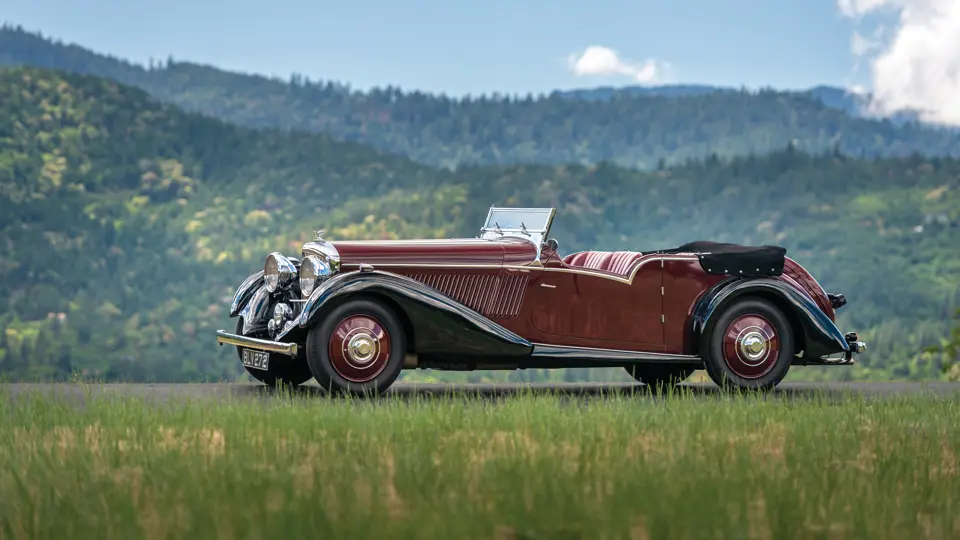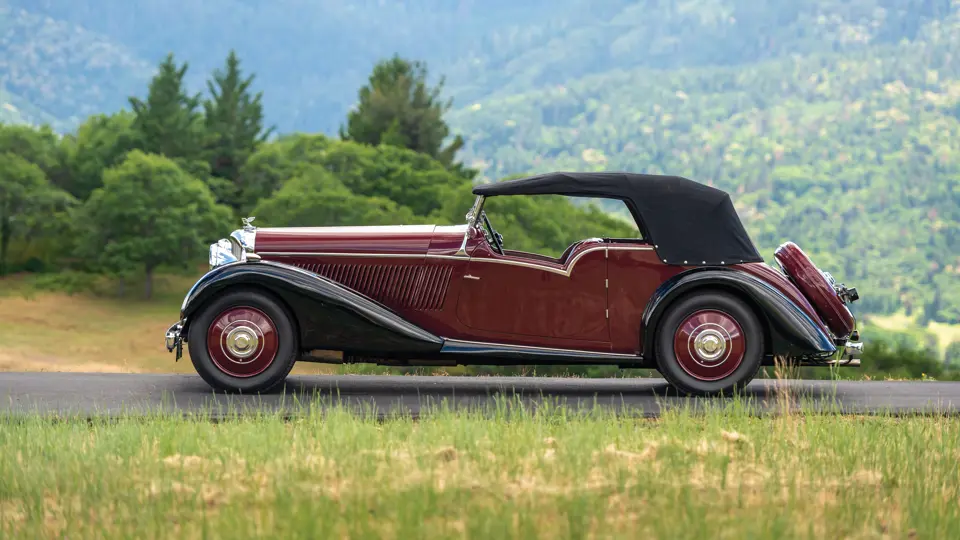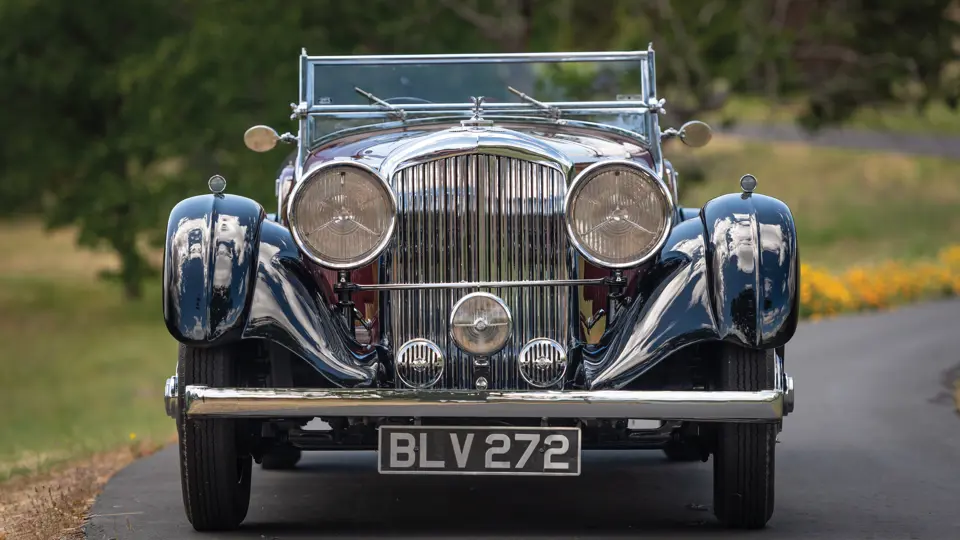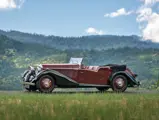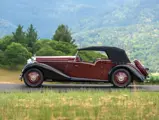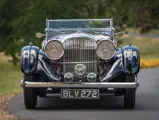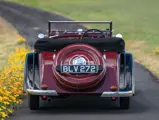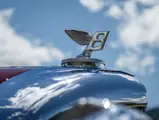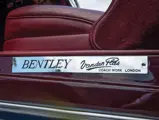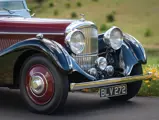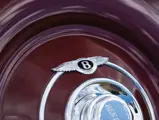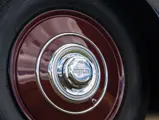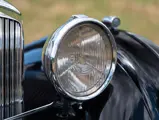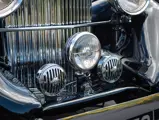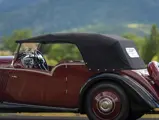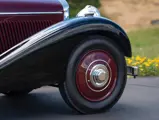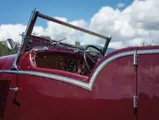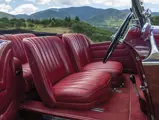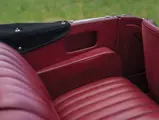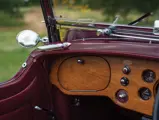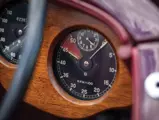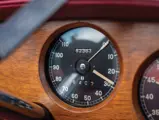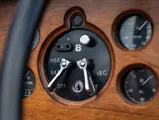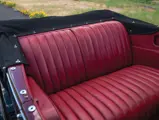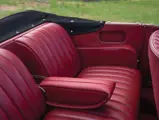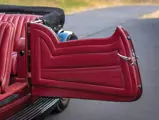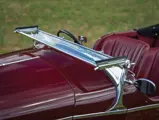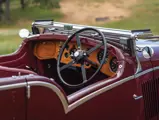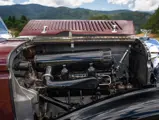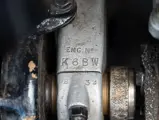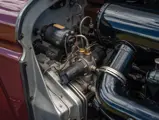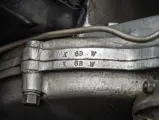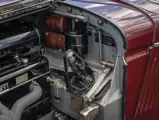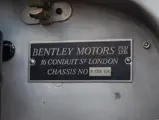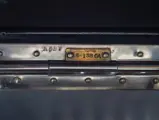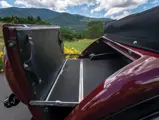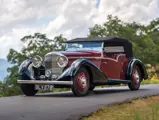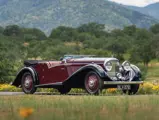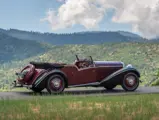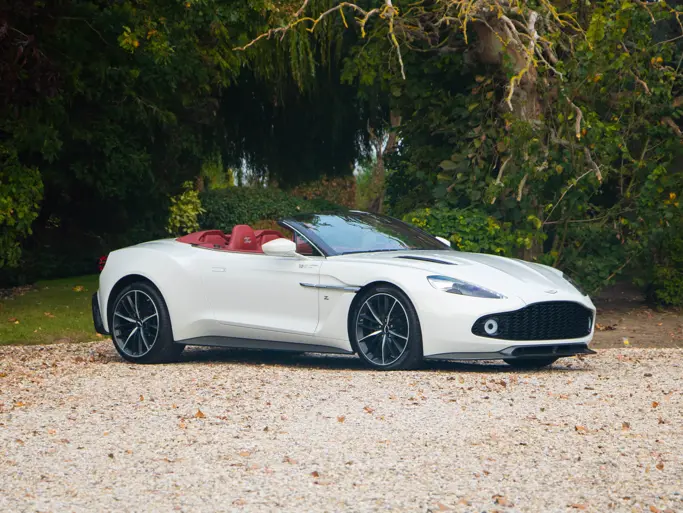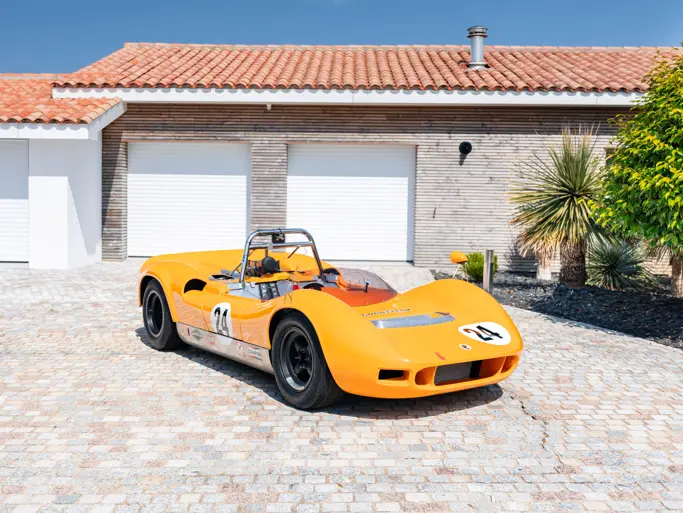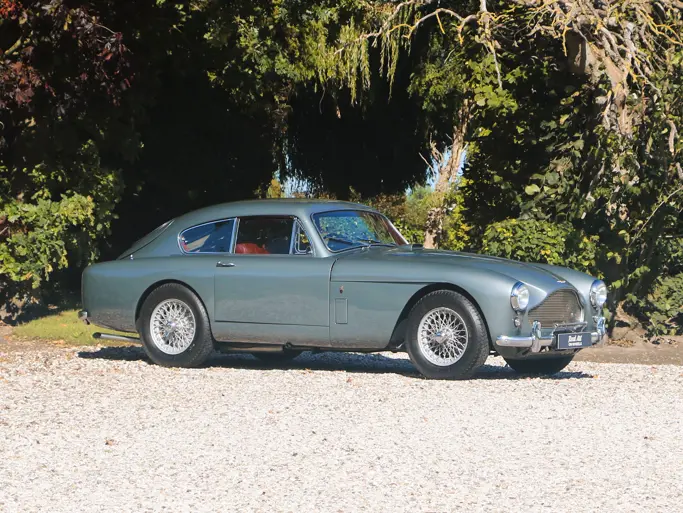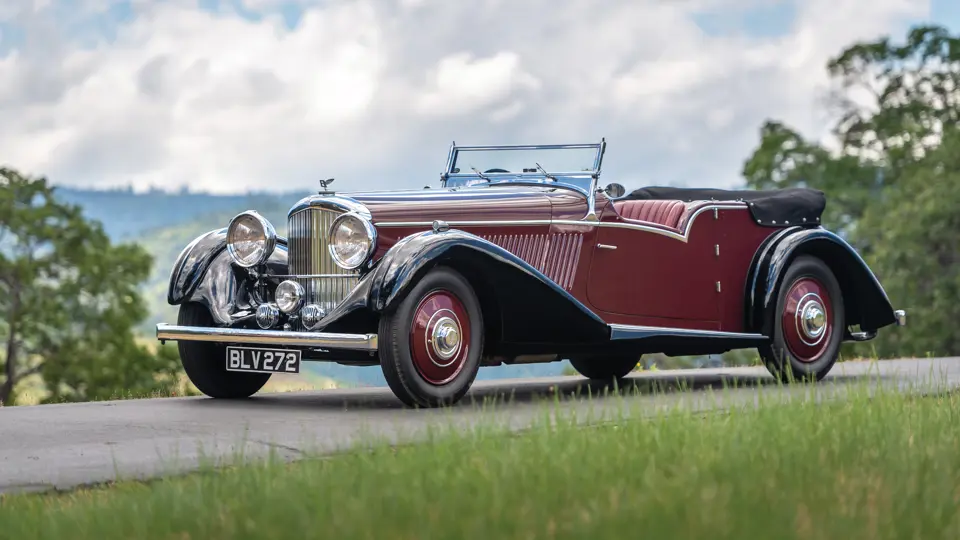
1936 Bentley 4¼-Litre Tourer by Vanden Plas
{{lr.item.text}}
$417,500 USD | Sold
{{bidding.lot.reserveStatusFormatted}}
- Original engine, gearbox, and Vanden Plas body
- Correct and beautifully presented example
- Documented history of well-known owners
- Includes copy of factory production records
- Extremely desirable sporting open coachwork
Rolls-Royce acquired Bentley Motors from Walter Owen Bentley in 1931, then struggled for two years to design and build an appropriate car, one that would honor the “W.O. Bentley” sporting and racing heritage yet not be confused with the statelier cars wearing the Rolls-Royce emblem. Rolls-Royce and Bentley Motors Works’ manager at Derby, E.W. Hives, CH MBE, developer of the Merlin aero engine, was later the chairman of Rolls-Royce, Ltd. He headed the team tasked with designing the all-new Bentley: a sports car that would appeal to a wide range of prospective buyers. His personal notes read, “...answer to the moods of the driver...be driven fast with safety...tour without fuss and noise...maximum speed should not be obtained at the expense of acceleration...controls, steering and brakes shall be light to operate and the braking shall be adequate for a fast car...maximum speed of the car on the road should be 90 mph, 75 mph in third gear…”
The first Derby-built Bentley, the 3½-Litre model, appeared in 1933 with a modified chassis and engine used in the Rolls-Royce 20/25 HP. Fitted with a new cross-flow head, twin SU carburetors, and a re-profiled camshaft, the result was a very sporting motor car, as Hives intended.
Motor magazine reviewed the new 4¼-Litre Bentley in April of 1936— “...an altogether extremely satisfactory car, which provides a unique combination of verve with docility, speed with comfort and performance with silence.”
In an era of noisy, almost agricultural cars, it was referenced as the “silent sports car” and attracted a long list of notable buyers.
Offered here, chassis no. B138GA is an exceptional sporting-style example bodied by Vanden Plas, prominent British coachbuilders. The newly designed 4¼-Litre chassis, with its semi-elliptic front springs and radiator in line with the front axle, attracted some of the most elegant coachwork in the 1930s, an era famous for distinctive motor cars. Records indicate Sir Malcolm Campbell, the famous British racing motorist who gained world speed records on land and on water, ordered one of his two Derby Bentleys with this same body style.
It was delivered to its first owner, Dr. W.G. Jordan, in Liverpool, on 19 May 1936. Its open body, design 3441, was only the second touring body built by Vanden Plas on the 4¼-Litre chassis. There were only twelve built, and it is believed to be one of only two fitted with the racy five-inch-high windscreen, like the one delivered to Sir Malcolm Campbell, its sister car. The two cars were built in the Vanden Plas Works alongside each other.
By 1939, the car went to Major P.R. Davies Cooke, who held the car until 1946, when it was acquired by an apprentice at Rolls-Royce Crewe in Cheshire—Mr. Peter, who worked as a production road-tester. According to a letter on file, he entered the car in many hill climbs, sprints, rallies, and numerous Bentley Drivers Club events. In 1950 he entered the Welsh Rally and finished in 2nd place. Ownership records indicate the car then had a series of owners, including London broker Richard Hicks, before it was acquired by Charles Howard.
In the late 1980s, Michael Bradfield, former chairman of the Bentley Drivers Club, bought the car and restored it at an expense of £140,000. In today’s currency, that restoration would total over half a million dollars!
In 1995 it was purchased by Mr. Bo Zarnegin, who sold it in 2003 to George Rombouts-Howitts, who had Bentley specialists Fiennes Engineering, Alpine Eagle, and Wildae Restorations complete additional work. The car was again enjoyed in a series of rallies and tours. In 2009, competing with the best cars in the world, it was awarded 3rd in Class at the prestigious Pebble Beach Concours d’Elegance. It then joined the world-famous collection of Lord Bamford before being acquired by its current owner.
In current—as when new—livery, B138GA is still wearing its original British registration plate, BLV272. Restored correctly, it turns heads with its glistening maroon paintwork and nicely coordinated, buttery maroon leather interior. No detail, mechanical or cosmetic, was overlooked. In recent years, as documented sale prices validate, the Derby Bentley has come into great favor by all collectors, not just British car enthusiasts. Few pre-war cars carry more graceful coachwork, nor offer more fun behind the wheel, than the Derby Bentley.
Reliably powered by its original 4¼-Litre engine, exhibiting the well-loved silky road manners of the “silent sports car,” and wearing its original open body, the Bentley performs as it should. Its fortunate new owner will be enthusiastically welcomed in the world’s most prestigious concours, club, and car events for years to come.
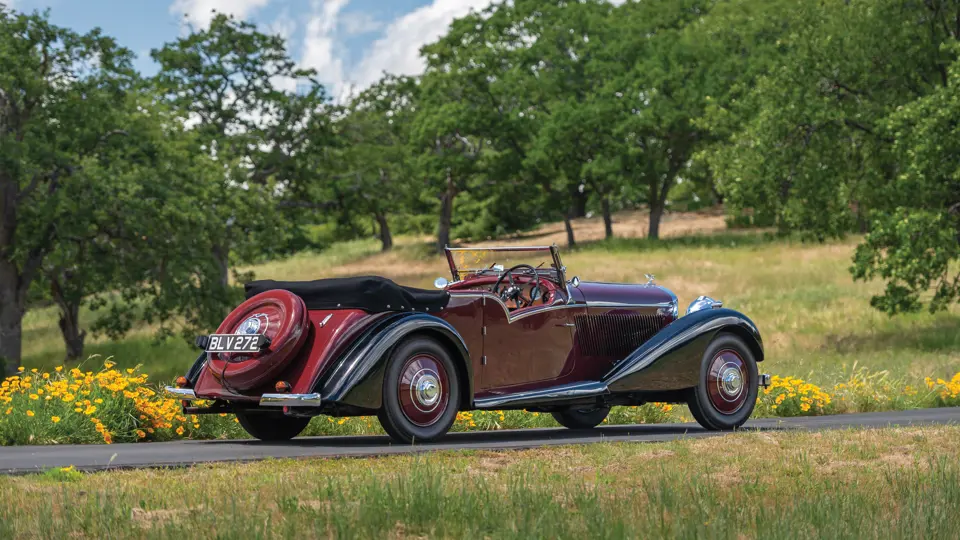
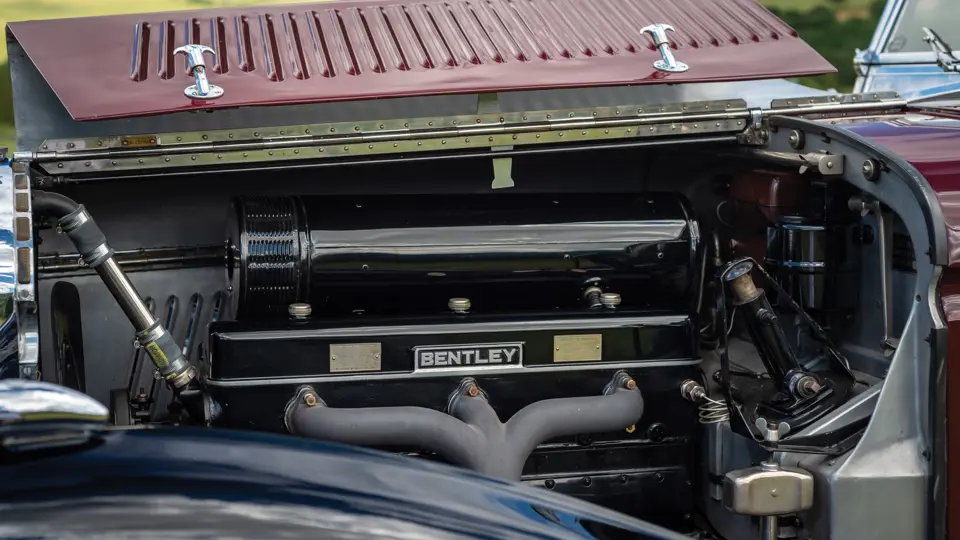


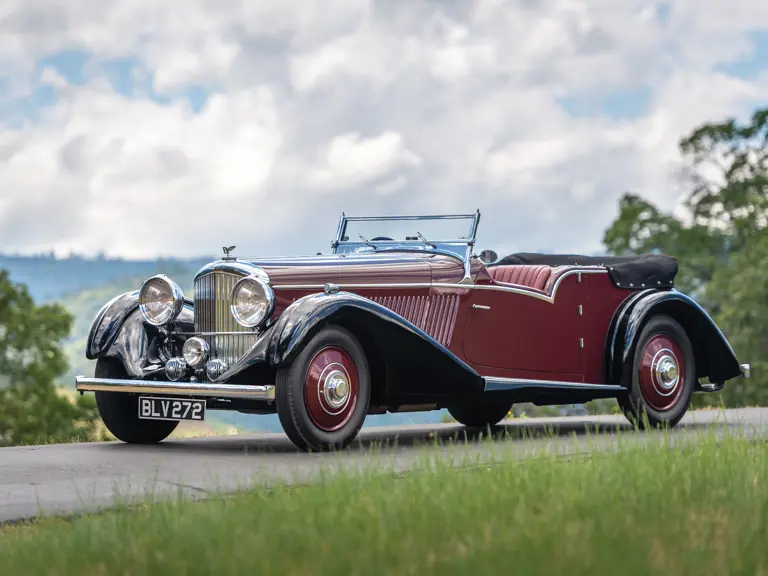
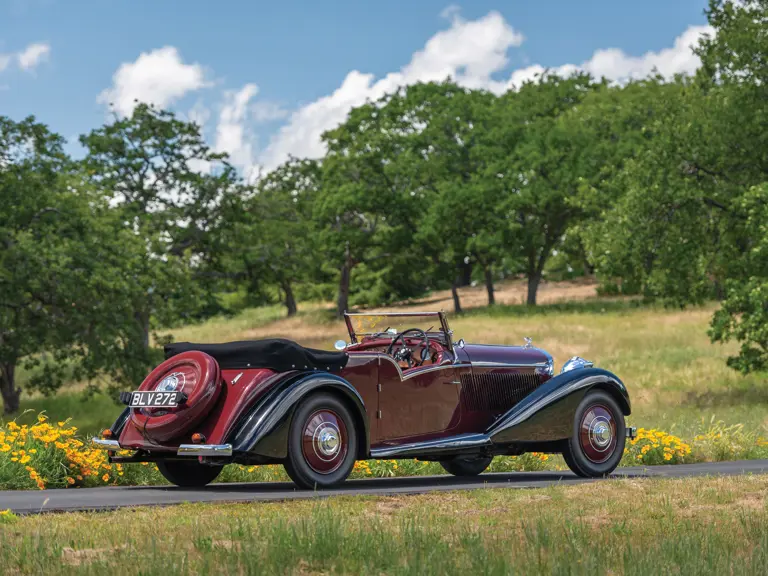
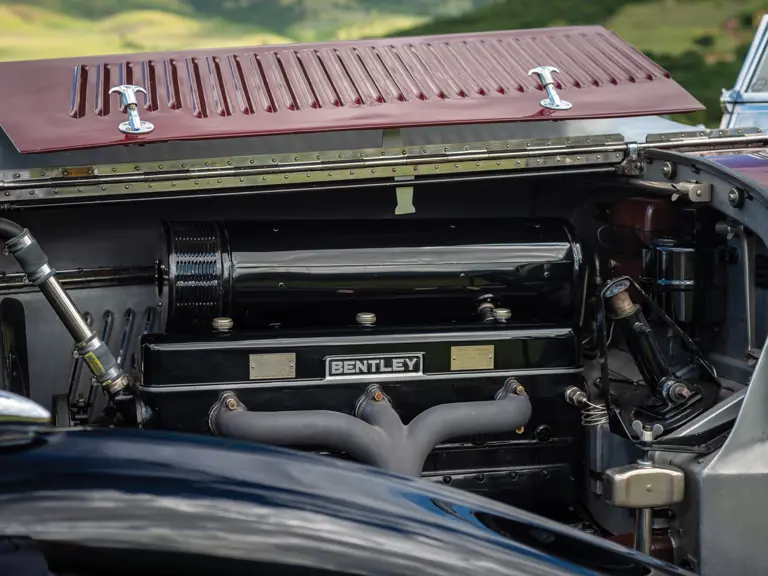
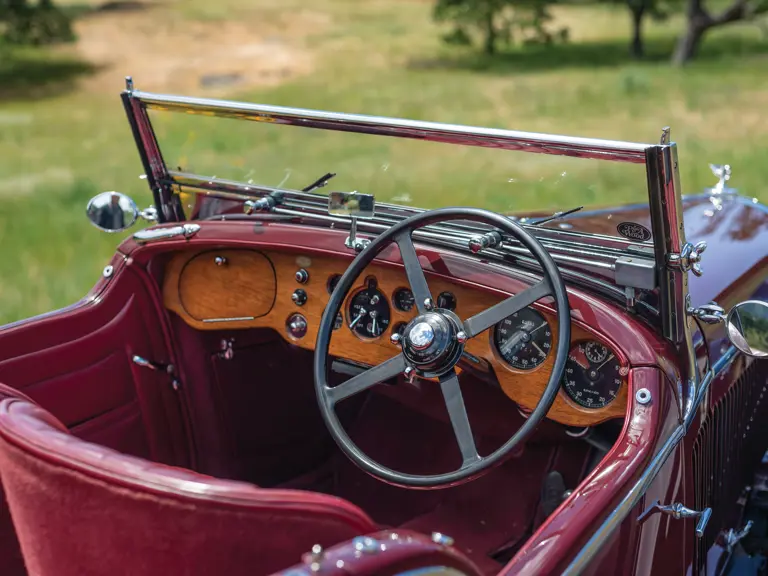
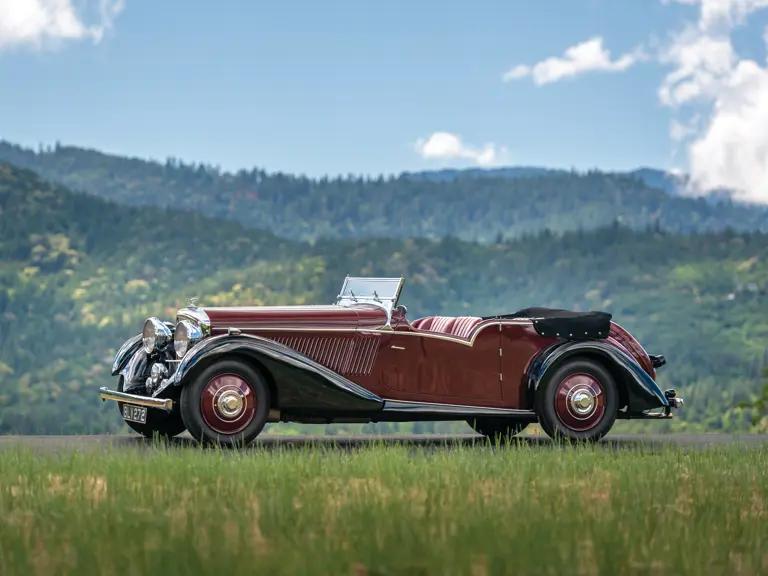
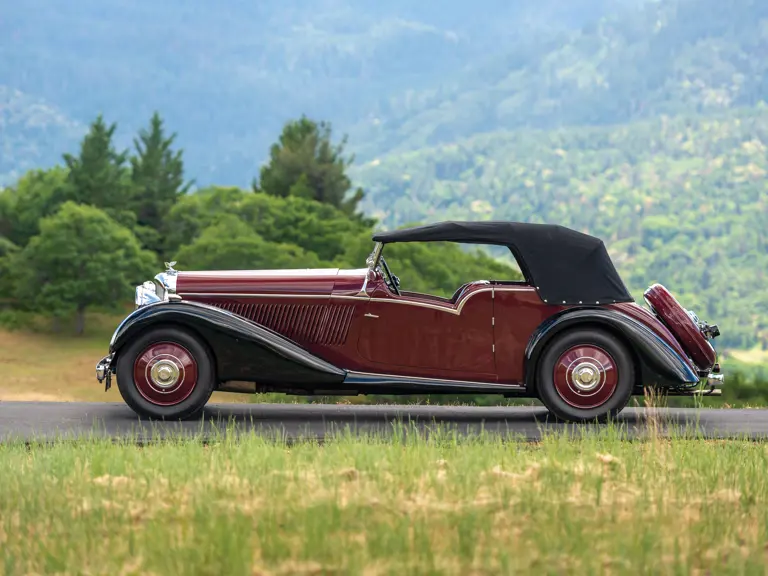
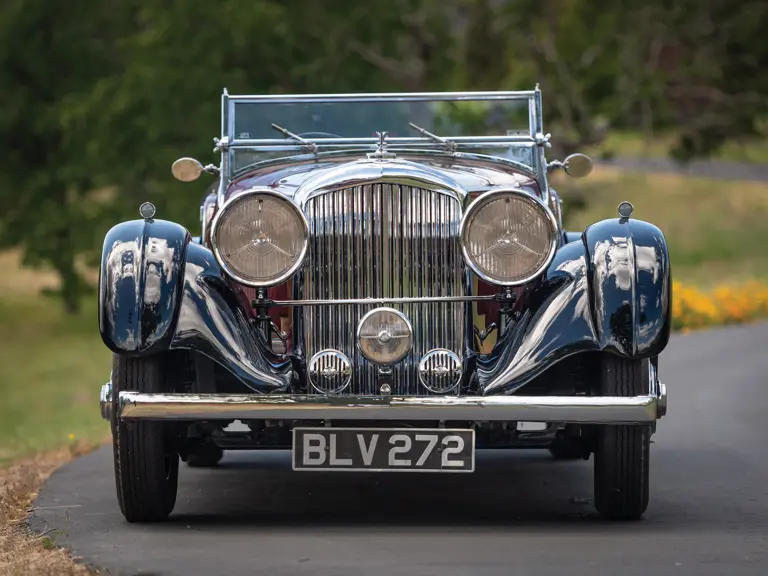
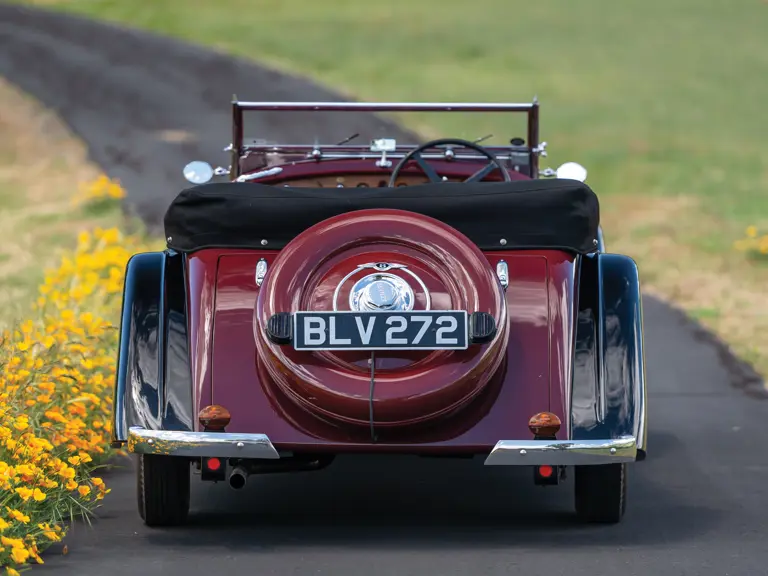
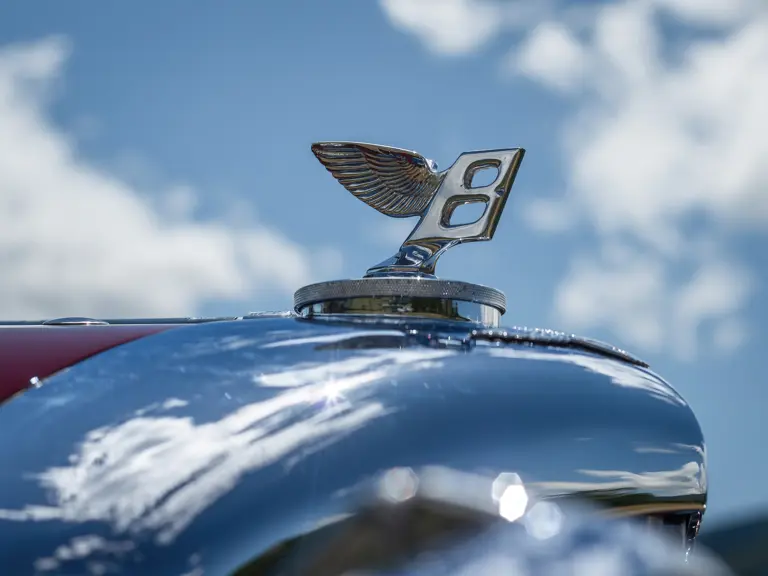
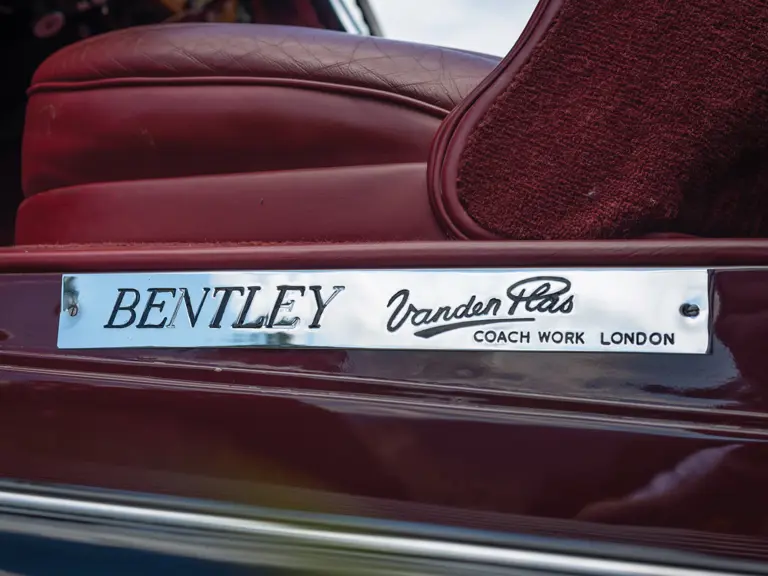
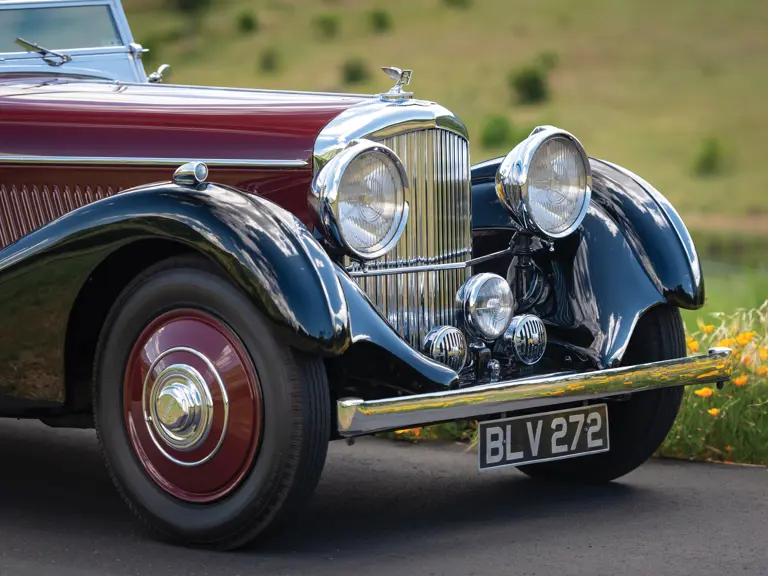
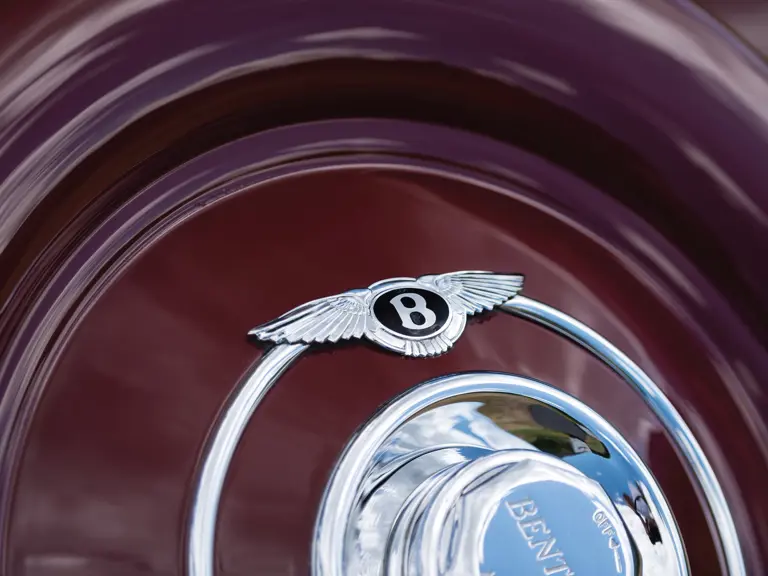
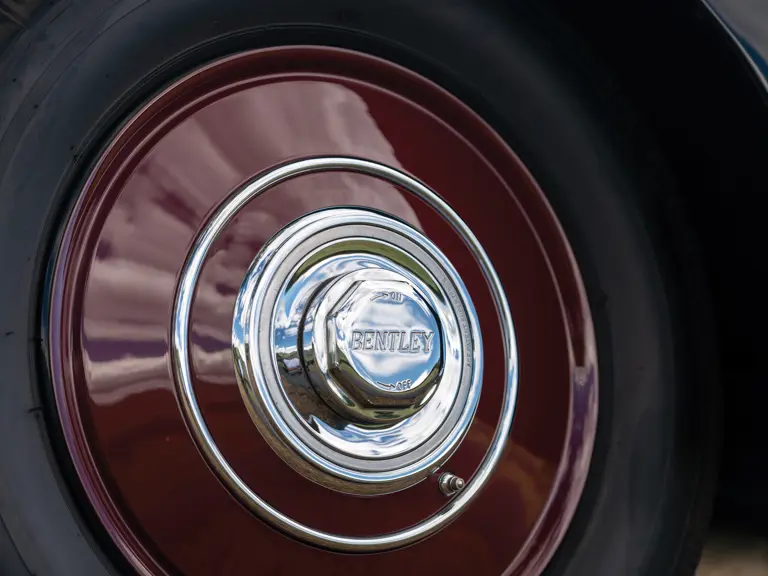
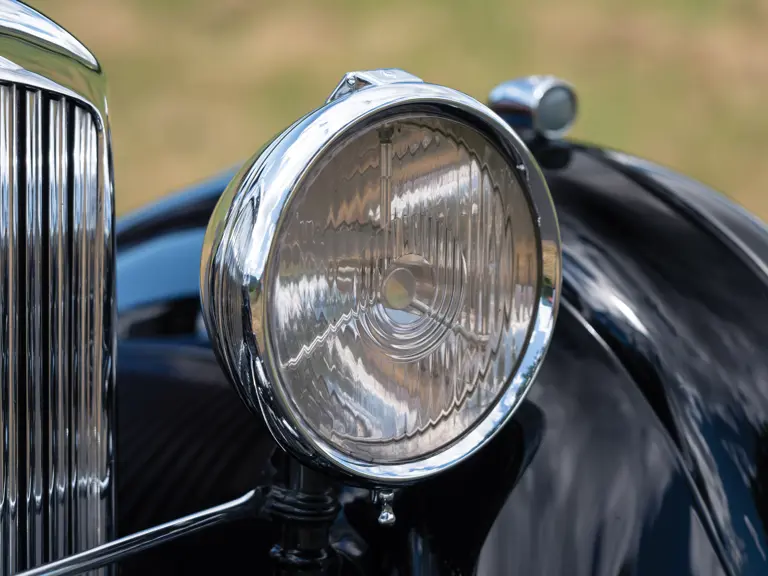
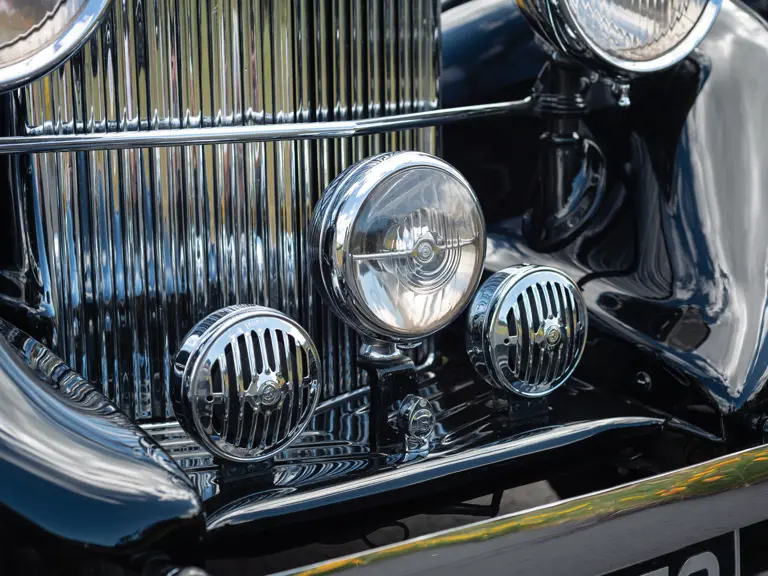
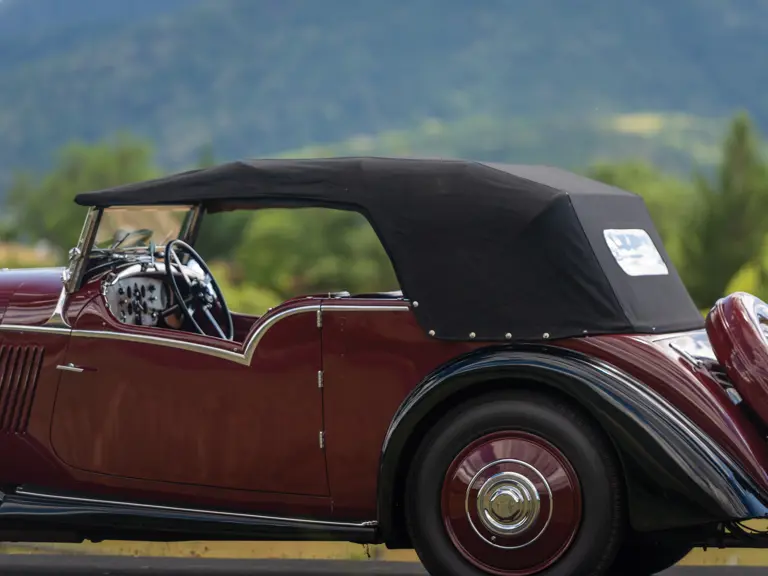
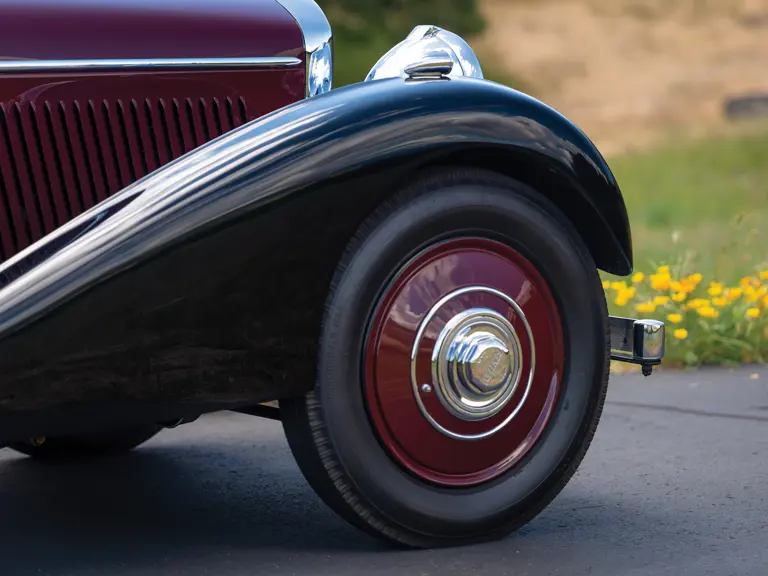
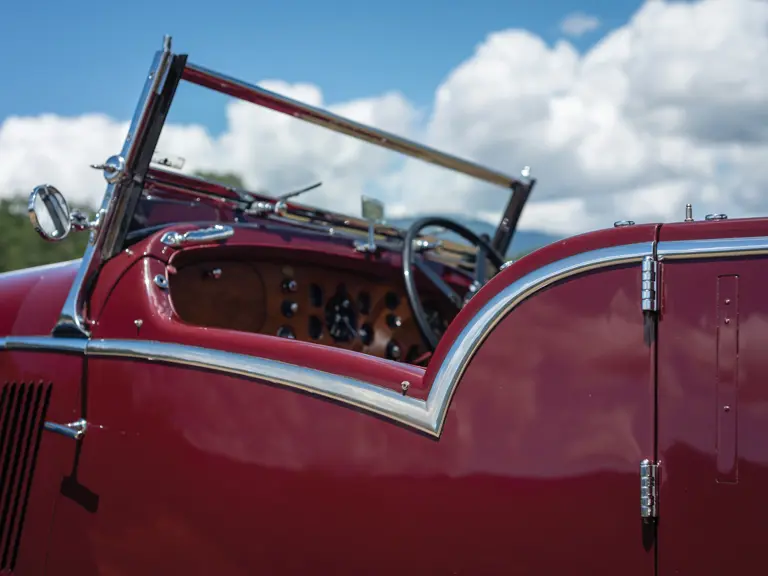
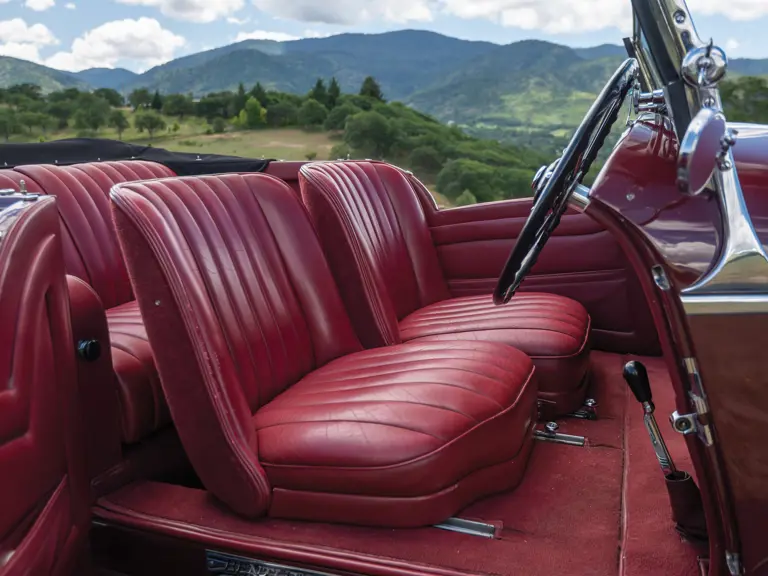
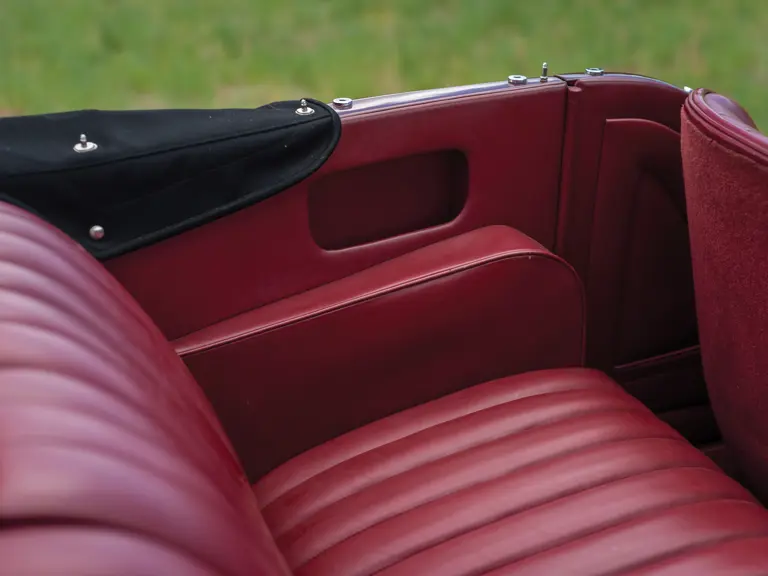
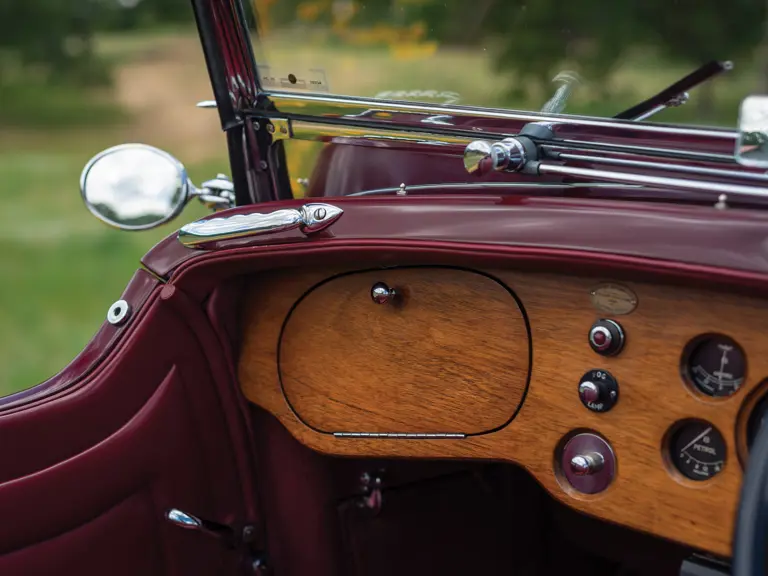
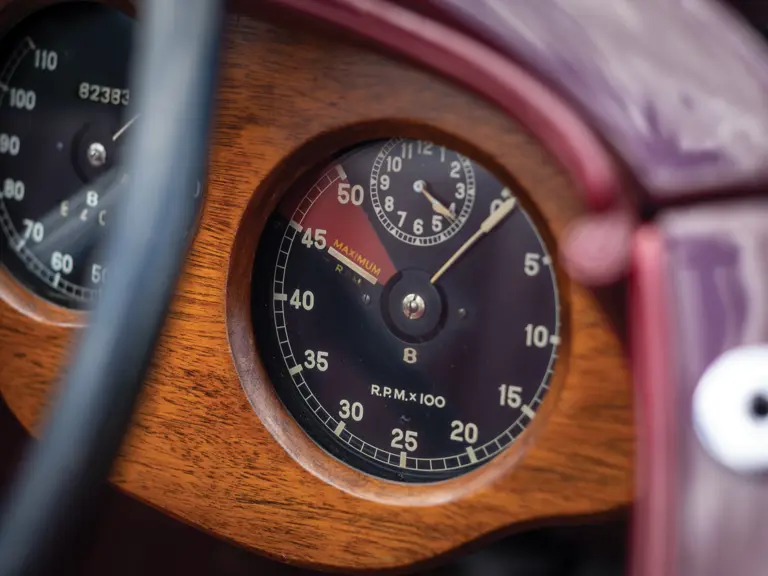
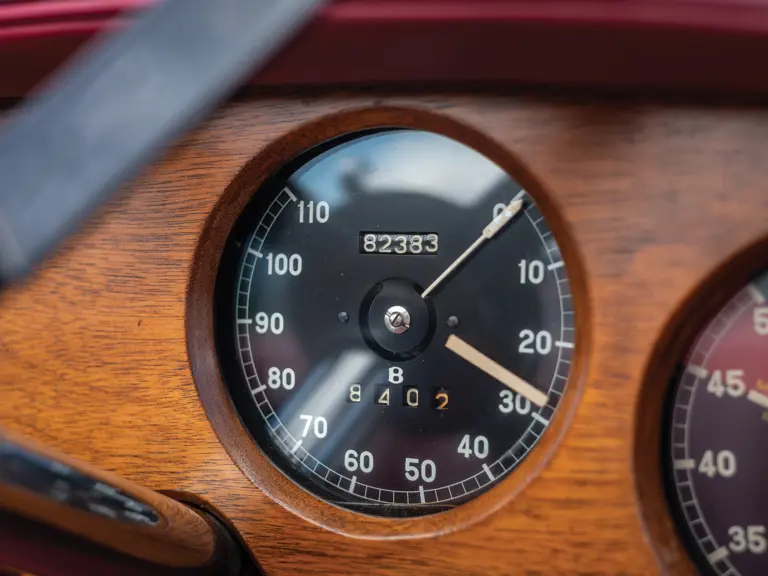
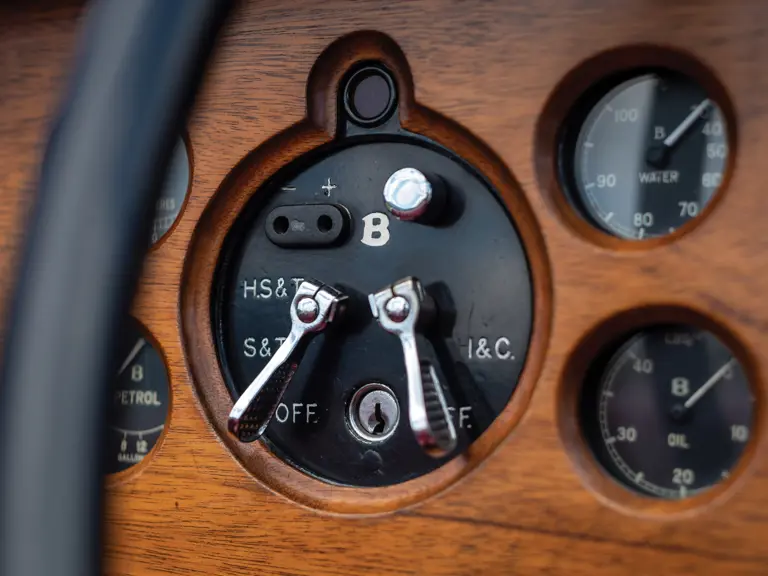
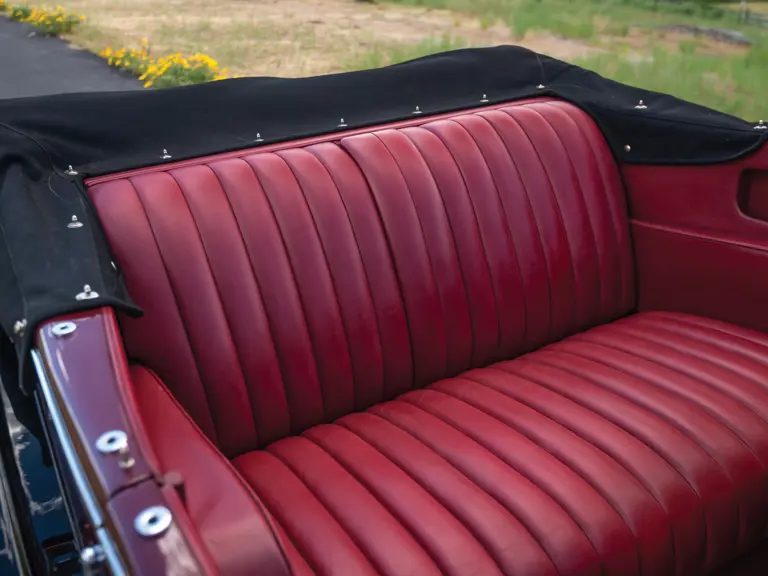
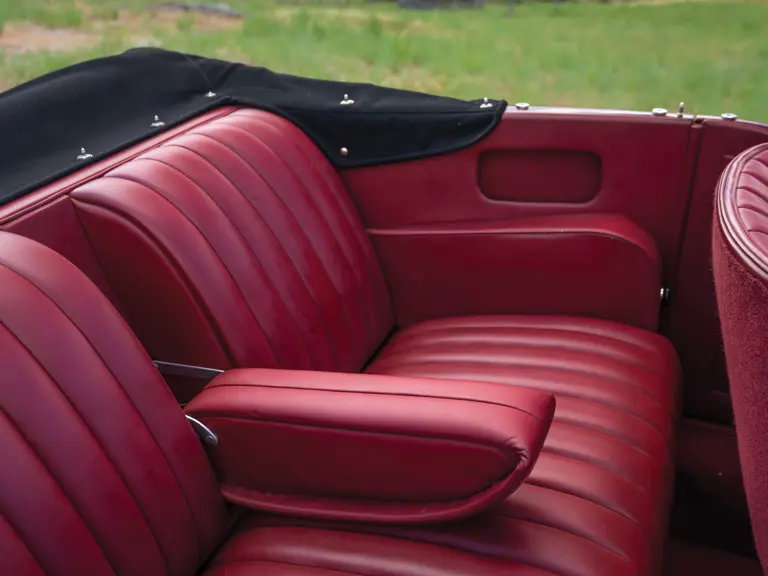
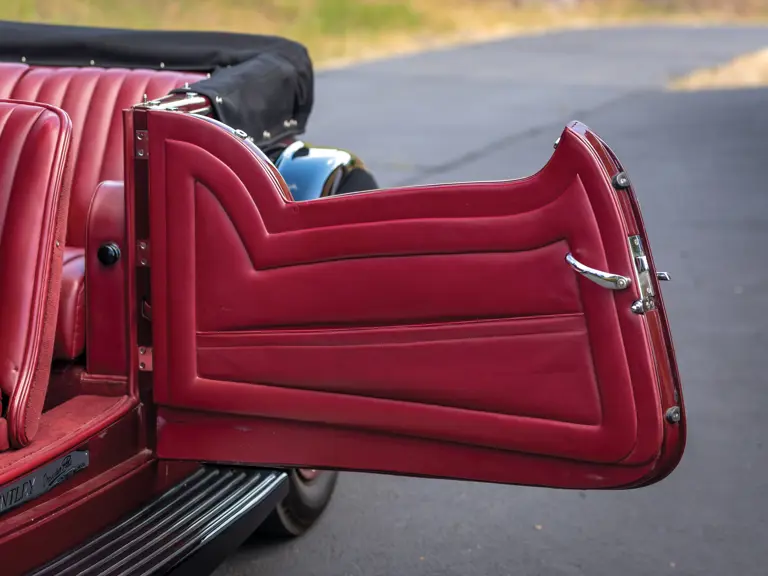
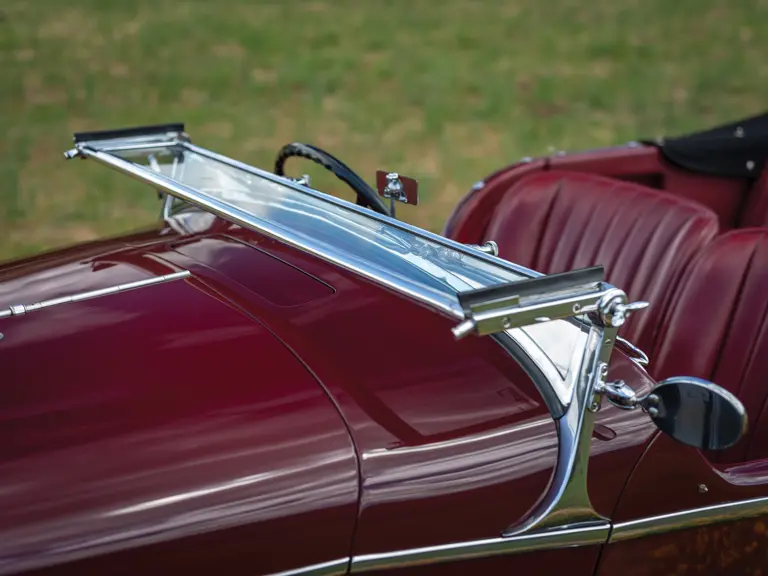
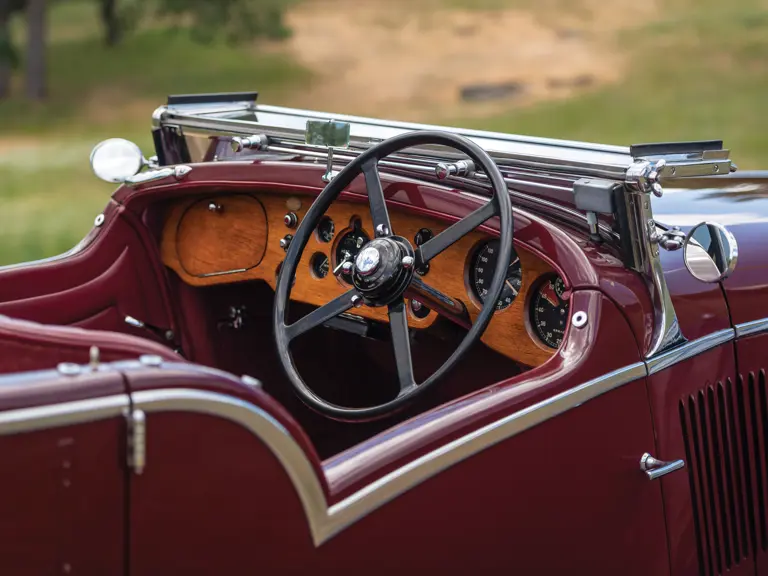
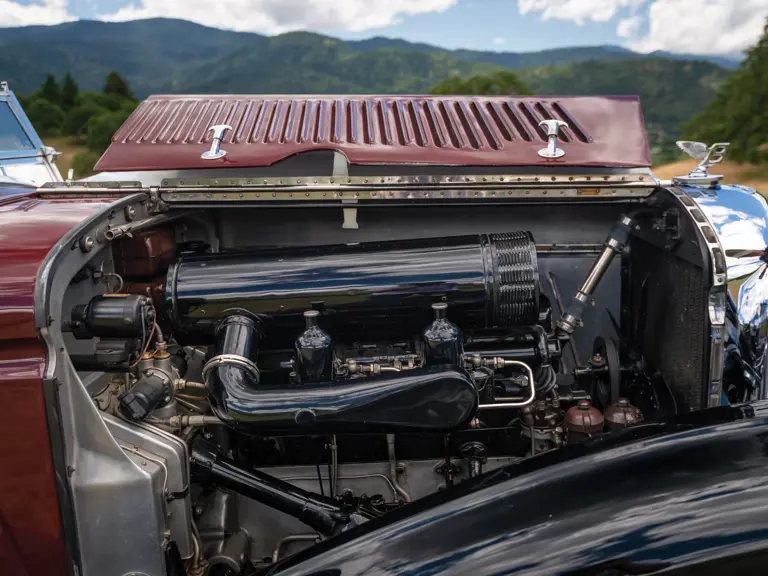
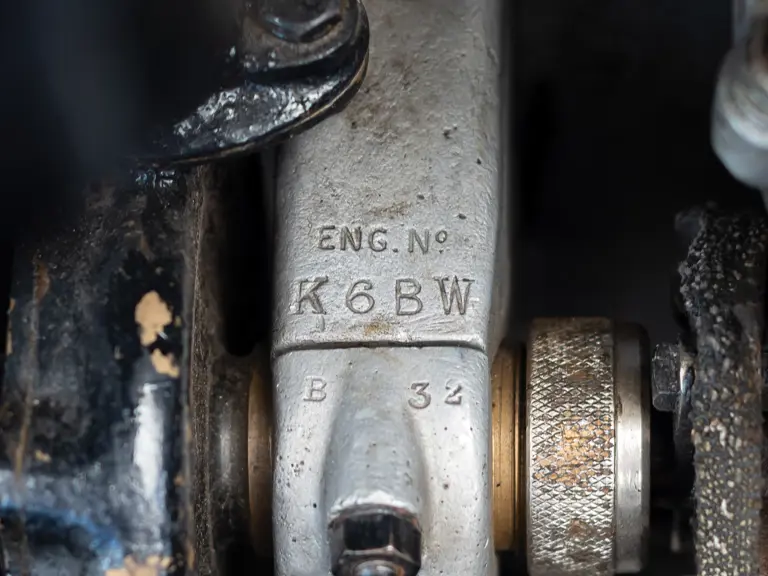
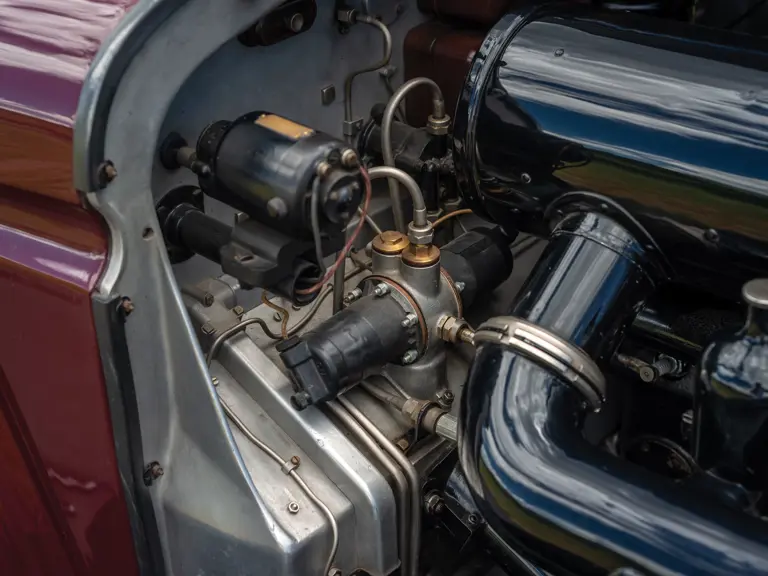
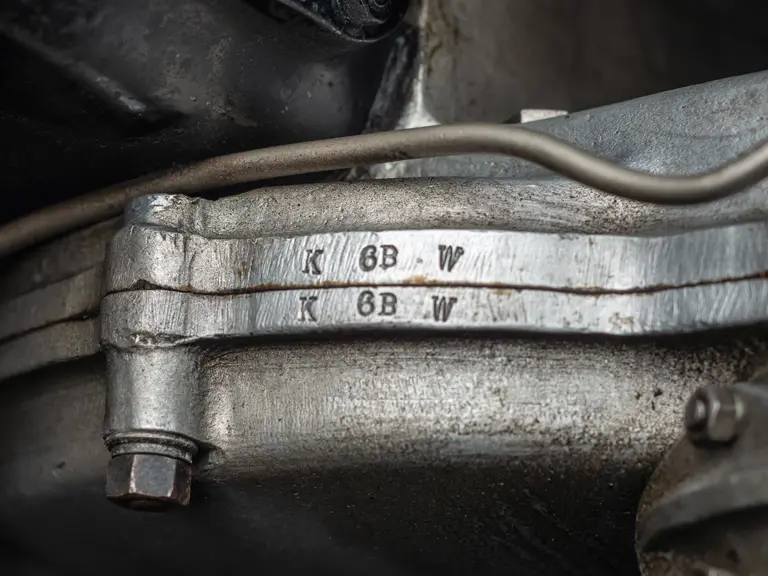
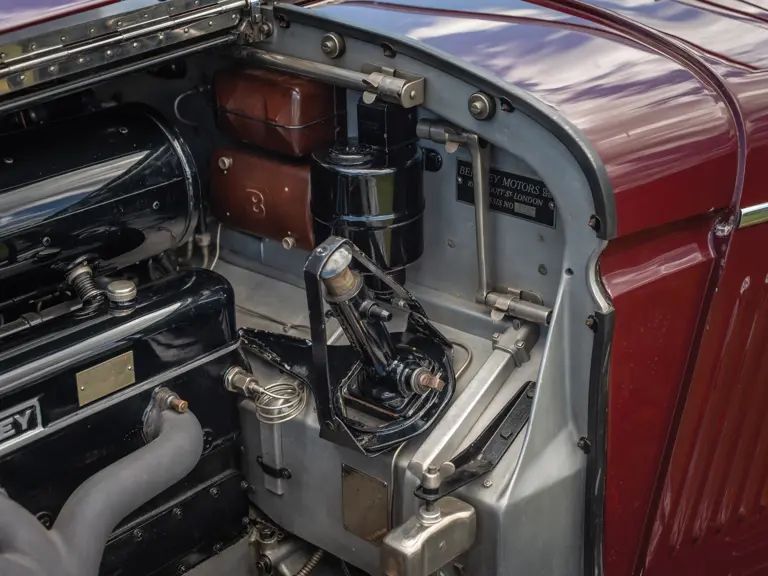
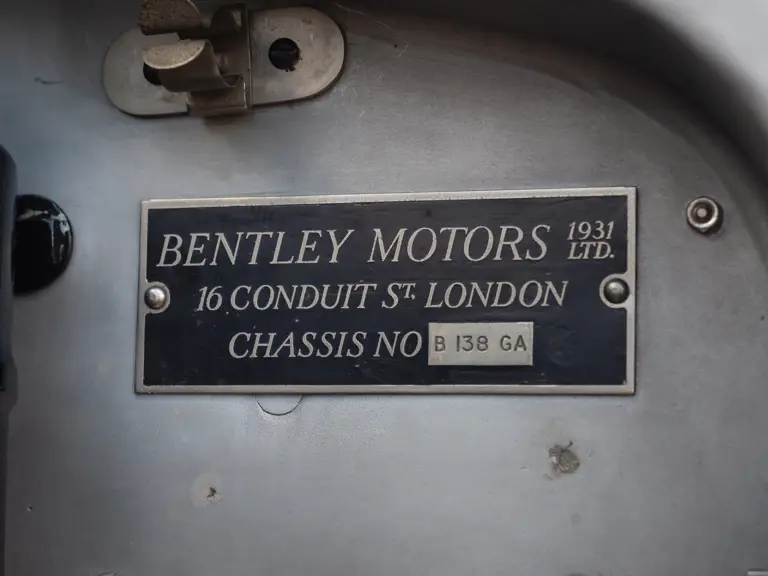
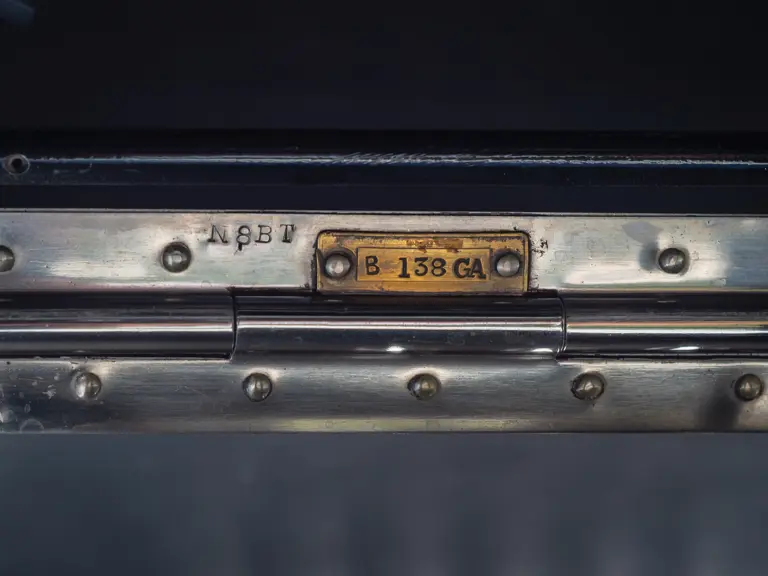
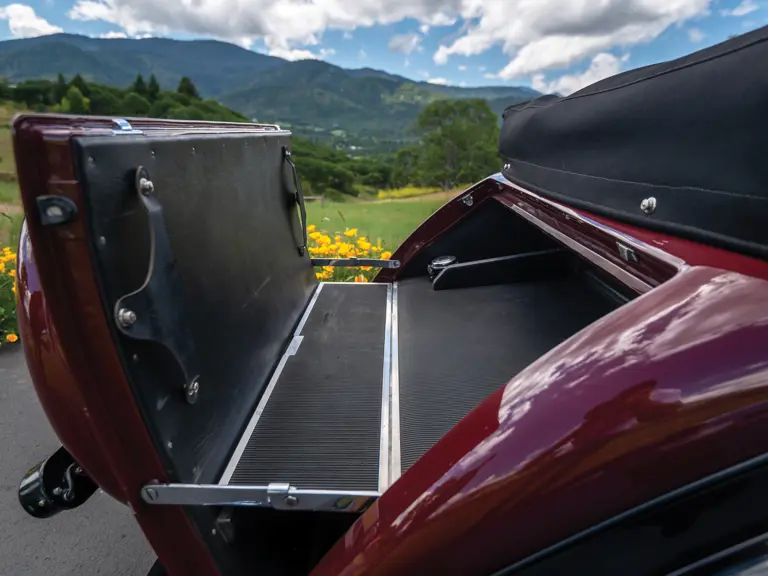
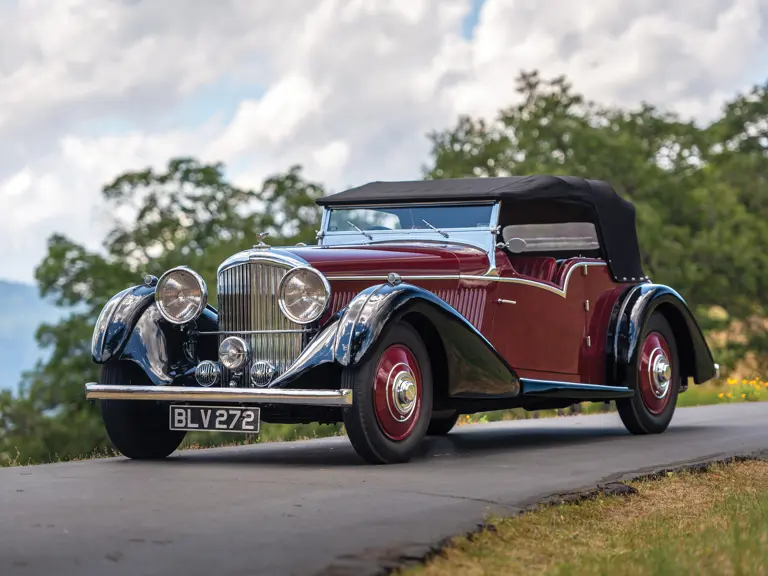
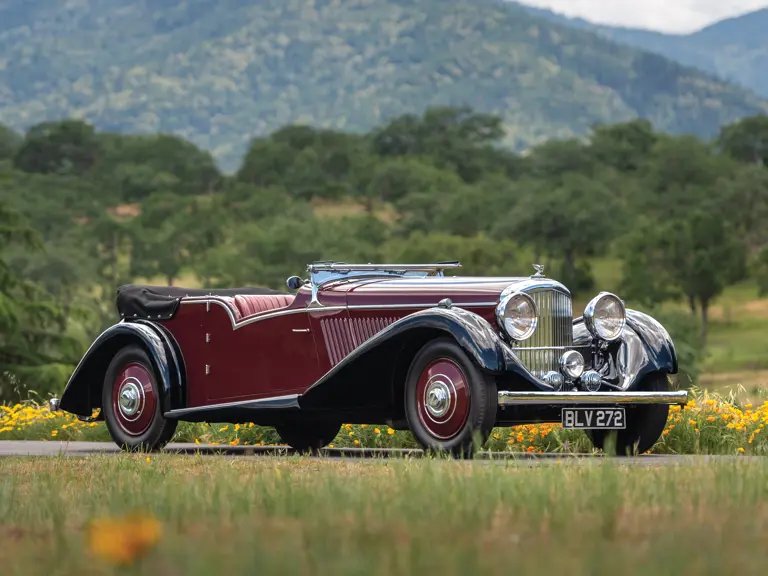
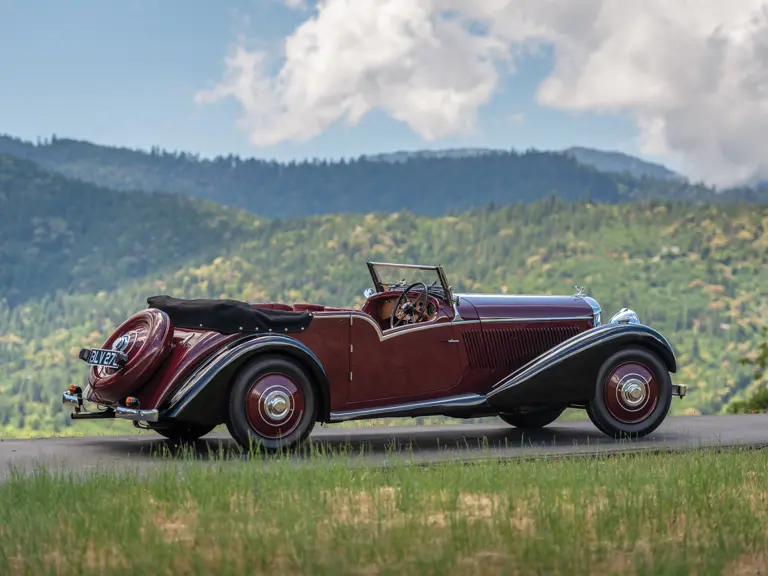
 | Monterey, California
| Monterey, California
